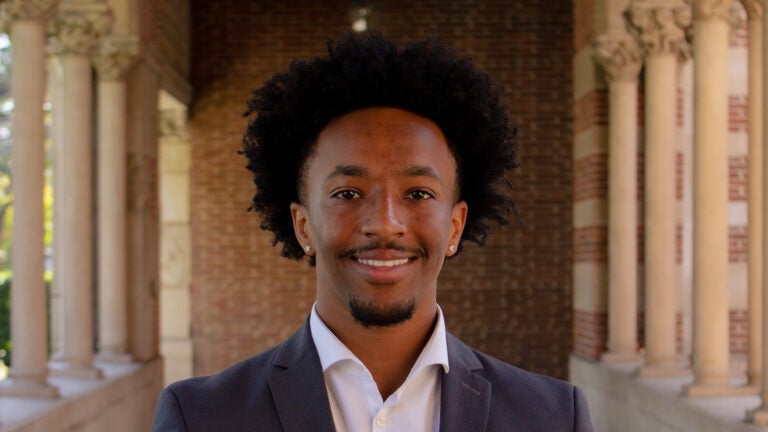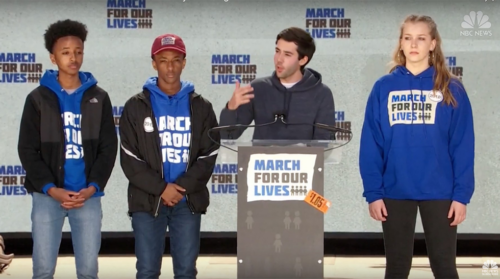
Undergraduate will use rare, prestigious Truman Scholarship to springboard career as civil rights attorney
Michael Solomon, a rising senior at the USC Dornsife College of Letters, Arts and Sciences, has been named a Truman Scholar. The history and international relations double-major was selected to receive the prestigious competitive scholarship based in part on his outstanding leadership potential and his academic excellence.
The Harry S. Truman Scholarship Foundation grants each scholar $30,000 for graduate studies, leadership training, career counseling, and federal government internship and fellowship opportunities.
Solomon, who hails from the Washington, D.C., suburb of Silver Springs, Maryland, plans to use the scholarship to pursue graduate degrees in law and history after graduating from USC Dornsife.
“I’m a firm believer in the potential of scholarship and shared knowledge as vehicles for change,” he says. Through his studies, he aims to build critical skills that will complement his efforts in the courtroom. He also hopes to build on his advocacy work.

A co-founder of Montgomery County Students for Change, one of the D.C. area’s largest youth advocacy organizations, Solomon has already spent several years in grassroots organization around gun violence prevention, education equity and civic engagement.
He’s also interned with municipal and federal government offices as well as policy, social and education consulting firms.
At USC, he is co-president of the university’s chapter of BlackGen Capital, which serves those who are underrepresented in business and the financial services industry.
He sees obtaining a law degree as important to continuing these efforts.
“Through my organizing work on the issues of school segregation, gun violence and civic engagement, I’ve come to recognize legal advocacy as an imperative avenue for justice,” he said. “I hope to start my law career working in the Civil Rights Division of the Department of Justice and later work as a litigator for renowned legal advocacy organizations such as the NAACP Legal Defense Fund or the American Civil Liberties Union.”
The inside scoop on applying
The process of applying for a Truman Scholarship — open to undergraduates during their junior year — presents significant challenges, and it’s not for the faint of heart, according to Solomon. He was one of just 62 recipients chosen from among more than 700 applicants from 275 colleges and universities nationwide.
“When I started the application process, I had never competed for a graduate-level scholarship and was very intimidated,” he said.
But staff at USC’s Academic Honors and Fellowships program are available to help students like Solomon apply for this and other scholarships.
“We are very intentional about creating a support system that provides mentors along the application journey,” said Katie Ann Capra, manager of the program. “Because these awards are incredibly competitive, it is important to us that students build their personal and professional narrative along the way. The result of this work is a portfolio that an applicant can repurpose for future endeavors no matter the outcome of the selection process.”
Solomon notes that much of his success in and out of academia comes from the people he’s encountered as a student and advocate.
“Everyone — from faculty and staff here at USC to mentors back in Maryland — has played such a significant role in my development as a student and public servant,” he said. “I couldn’t have done any of this without them.”
He encouraged other students with interests similar to his to apply for the Truman Scholarship, but he cautioned that their sense of achievement shouldn’t hinge on a successful application.
“Any student who has a genuine commitment to public service should definitely apply because that commitment will show during your interview,” he said. “But whether a student ends up receiving the Truman ultimately has little bearing on their value as an advocate or public servant. While they can be incredibly helpful, these institutions don’t define us. Our service to those around us does.”